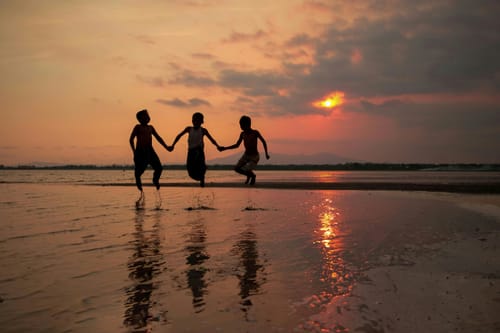With home ed, one of the first things people wonder about is what their social life will look like. Will your kids be sitting alone at the kitchen table while other kids are running around together at school?
The reality couldn’t be more different.
The truth is, home educated kids have so many opportunities for genuine connection. They meet people of all ages and backgrounds through meet-ups, co-ops, clubs, activities and everyday life in the community. A really common conversation amongst home ed families is how over-scheduled they are at times.
The worry makes sense though. School can give you the comfort of knowing your kids are around others all day, which can feel like it’s enough for them to pick up social skills and make friends. And for some children, it does lead to great friendships. But it’s not a guarantee - I saw this clearly when I was teaching. For some, school isn’t the best place to develop social skills or feel truly connected. It’s one way to socialise, but definitely not the only way.
The great part about home ed is the flexibility to create a social life that suits your child’s personality and needs - as well as the whole family. For example, we’ve had periods where we've been out and about non-stop - my kids playing with friends for hours almost every day or going to various activities - followed by much quieter stretches when we pull back to enjoy family time and recharge. This ebb and flow helps us balance connection with rest, making sure socialising works for us, not the other way around.
The key difference with home ed is intention. Building social connections does take some effort at first - getting out, meeting people and finding opportunities. But the community is incredibly welcoming, and once you start looking, you’ll discover more chances to socialise than you would have expected.
The most crucial part though, is that social skills don’t just develop from being surrounded by people all the time. They grow from meaningful connections, from being seen, heard and supported. Focusing on strong relationships at home and modelling healthy relationships in our own lives, lays the foundations for the social skills our kids will need to thrive in any environment.
I've written a further, more detailed post about this, including my own experiences, here.

